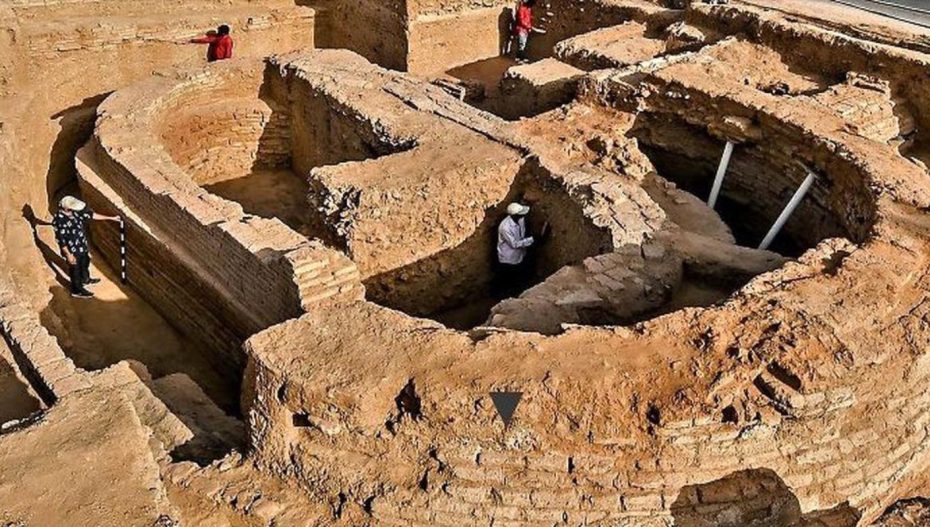A group of researchers from some of the top institutes of the country have found the remains of a 2,800-year-old human settlement in Gujarat’s Vadnagar, Prime Minister Narendra Modi’s native place.
Researchers from IIT Kharagpur, Archaeological Survey of India (ASI), Physical Research Laboratory (PRL), Jawaharlal Nehru University (JNU) and Deccan College have found evidence that the human settlement goes back as old as 800 BC and reveales the presence of seven cultural stages.
Dr Anindya Sarkar, Professor of Geology and Geophysics at IIT Kharagpur said the excavation work had been going on since 2016 and the team had dug up to a depth of 20 metres.
The findings were published in a paper titled ‘Climate, human settlement, and migration in South Asia from Early historic to medieval period: Evidence from new archaeological excavation at Vadnagar, Western India’ in the journal ‘Quaternary Science Reviews’.
ASI archaeologist Abhijit Ambekar, co-author of the paper, said, “Excavation in its several deep trenches revealed the presence of seven cultural stages (periods) namely, Mauryan, Indo-Greek, Indo-Scythian or Shaka-Kshatrapas, Hindu-Solankis, Sultanate-Mughal (Islamic) to Gaekwad-British colonial rule and the city is continuing even today. One of the oldest Buddhist monasteries has also been discovered during our excavation.”
Ambekar added that the archaeological artefacts they found included pottery, copper, gold, silver and iron objects and intricately designed bangles. Coin moulds of Greek king Appollodatus from the Indo-Greek rule at Vadnagar were also found, he added.
The archaeologist also claimed that the remains discovered make Vadnagar the oldest living city within a single fortification unearthed so far in India.
Meanwhile, Anindya Sarkar said some of their recent unpublished radiocarbon dates suggest that the settlement could be as old as 1,400 BC, contemporary to the very late phase of the post-urban Harappan period. “If true, then it suggests a cultural continuity in India for the last 5,500 years and the so-called Dark Age may be a myth,” he added.
“The earliest settlement period in Vadnagar started at least during 800 year BCE i.e., the early Iron Age or questionably the Late Vedic period and pre-dates both Buddhism and Jainism. This period continues into the Mauryan rule and ends with its fall around 150 year BCE. After the downfall of the Gupta Empire, large-scale de-urbanisation, drying up of water bodies, famines and population contraction across India occurred”, said Sarkar.
He added during the last 2,200 years of tumultuous time of Indian history there were seven invasions from central Asia to India (including Gujarat), imprints of which can also be found in the successive cultural periods of Vadnagar.
Archaeological Supervisor Mukesh Thakor said the reason the excavated remains look like a live city is because the water management system was very good. People of different faiths lived at the site, he added.
Thakor said more than one lakh remains have been unearthed and around 30 sites in Vadnagar have been excavated.
Also Read: 17 Lose Eyesight After Botched Cataract Surgery: Gujarat HC Seeks Report












